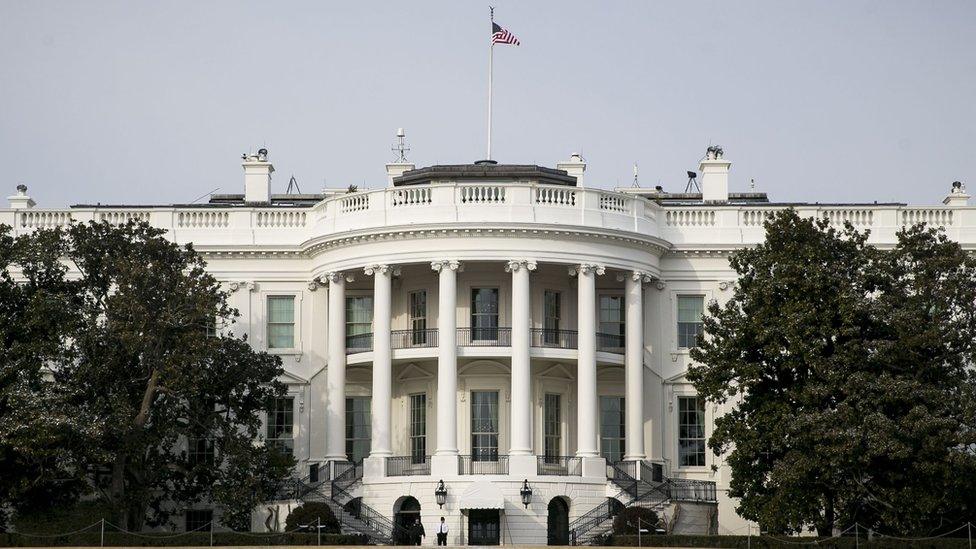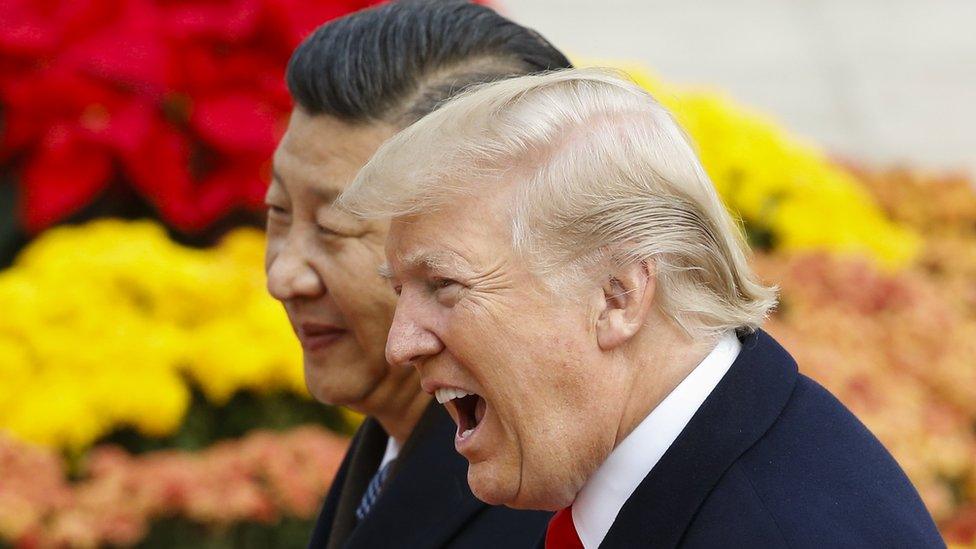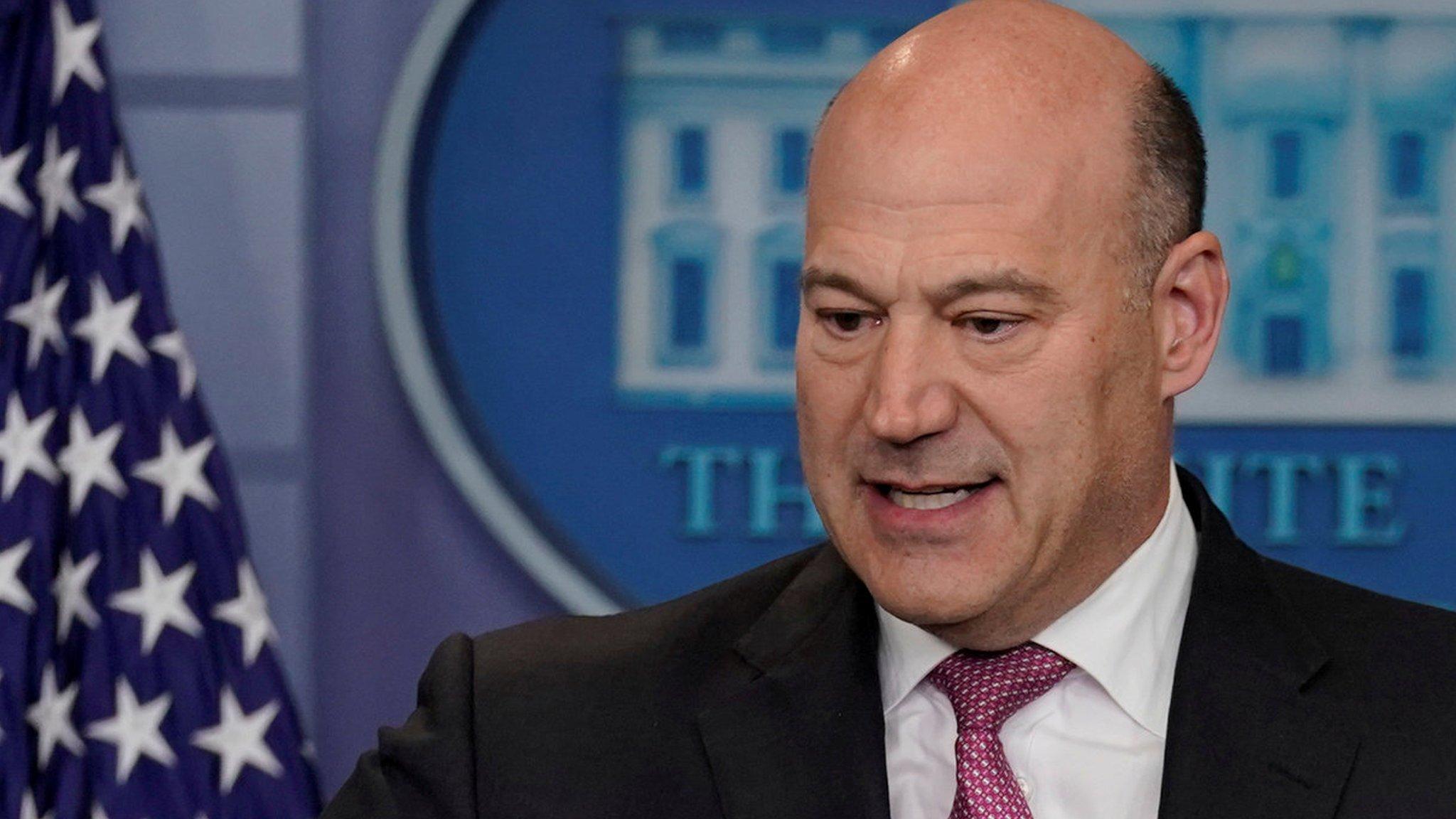Gary Cohn says Trump tariffs are a 'tax on Americans'
- Published
Gary Cohn: Trade tariffs are a consumption tax
Gary Cohn, Donald Trump's former chief economic adviser, warned that the trade war between Beijing and Washington will impose unwanted taxes on Americans.
He told the BBC he agreed with the US President's move to lower the US corporate tax rate, but said American tariffs on Chinese goods were akin to a consumption tax.
The US and China have been engaged in a tit-for-tat trade battle for months.
Mr Cohn was speaking in Singapore with the BBC's Karishma Vaswani.
Both countries have imposed several rounds of tariffs on each other's goods - and Mr Trump has warned that even more tariffs could be on the way.
However, Mr Cohn has warned that the trade battle war between the two giants will simply hurt the back pocket of many American consumers - which will in turn hurt the US economy.
"We are not a manufacturing economy," he said. "So if US citizens can buy products cheaply, they have more money to spend on goods, and once they spend on goods they can take the additional money they have and they can save it - and we do need a higher savings rate in the US.
"I look at tariffs as a bit of a consumption tax [and] we do not want to tax our consumers when they're going to spend their disposable income on what we produce, which is services."
Mr Cohn said Mr Trump had a clear idea of what he wanted to achieve in any further trade negotiations with China.
"The president has his style, he has his tactics," the former advisor said.
"People have questioned him all the way ... [but he] is moving forward on trade, moving forward on protecting US companies, moving forward on protecting US jobs - he understands that's what he ultimately has to do."
Mr Cohn and Mr Trump were never believed to be close, but the 57-year-old former Goldman Sachs executive helped the President push through his sweeping tax reforms late last year.
Mr Cohn's departure from the White House was announced in March, adding to a string of high-profile departures.
- Published15 December 2020

- Published18 September 2018

- Published7 March 2018
